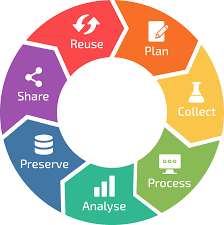
In today’s digital world, modern businesses are inundated with data. The sheer volume, velocity, and variety of data have overtaken the capability of many organizations to manage it effectively. This is where Data Lifecycle Management (DLM) comes into play—a strategic approach to handling an organization’s data from its inception to its eventual retirement.
Data Lifecycle Management is significant in modern business for various reasons:
Firstly, it fosters compliance with ever-evolving regulatory requirements. As privacy laws such as GDPR and CCPA come into effect, organizations must ensure that their data management practices keep them in compliance to avoid hefty penalties.
Secondly, effective DLM enhances the quality and integrity of data. By managing how data flows through an organization, businesses can ensure that relevant stakeholders have access to timely, accurate information, leading to better business decisions.
Thirdly, by optimizing storage resources through DLM, organizations can save costs. Data that is no longer active can be archived or permanently deleted according to the company’s data retention policy. This clear policy helps in reducing the costs associated with storing and protecting data.
Moreover, security risks are mitigated when you have a robust DLM strategy. The ability to track and control data throughout its lifecycle allows for early detection of potential breaches and also enables more effective responses to any security incidents.
Another key benefit of Data Lifecycle Management is streamlined operations. When a business has a defined process for how data should be handled, it eliminates redundancies and inefficiencies allowing staff to access and use data without confusion or delay.
Lastly, good DLM practices enhance a company’s reputation. In an age where customer trust is paramount, demonstrating a strong commitment to responsible data handling can differentiate a company in competitive markets.
In conclusion, the importance of Data Lifecycle Management cannot be overstated for modern businesses—it is paramount in ensuring compliance, enhancing data quality and integrity, realizing cost savings, bolstering security measures, streamlining operations, and maintaining a trusted reputation among consumers. Companies that ignore Data Lifecycle Management do so at their peril as they risk falling behind in a landscape where proper data governance has become a critical pillar of success.
